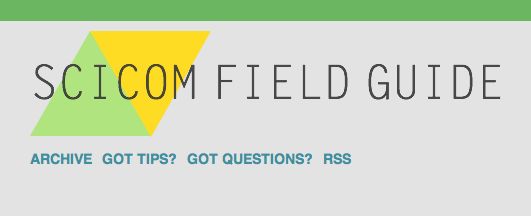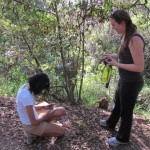Two quarters ago, David Cohn—the web whiz and crowd-funded journalism advocate who invented Spot.us—left the SciCom class of 2012 with a note-worthy nugget of internet advice.
“It’s cheaper and easier to try something,” he said, “than to debate about whether or not to try it.”
Instead of carefully considering the pros and cons of making a webpage, starting an internet-based project, or creating a social media network, his thinking goes—just do it. Instead of trying to iron out all the possible kinks before launching a new idea, figure them out on the fly. Or, in Cohn’s words, “Fail early and fail often.”
In essence, the best way to carry a new idea forward on the web is to dive in and get started. Cohn calls it “agile and iterative” development. This learn-and-go method helped him pick up new tools, develop partnerships, and nail down the ideas that eventually built the backbone of Spot.us. It even helped him generate a little pre-project buzz.
In this spirit of experimentation, I decided to do something a little different for this blog post. I decided to create another blog. A field guide, of sorts, for SciCom.
As we wrap up nine months of science-writing boot camp, I’ve been thinking about how much our class has learned over the past three quarters. We haven’t just learned how to write and report, we’ve learned how to navigate the program too.
So I wanted to create a place where future classes could come for advice: tips and tricks from the class of 2012 (and past classes too, if they want to contribute.) The platform is simple: a tumblr blog that’s open to posts from former SciCom class members (or people who know the password: scicom).
Because I want visitors to quickly find the advice they’re looking for (without scrolling through pages of past entries) I’ve included a list of tags to help group advice into categories (such as fall, winter, and spring quarters, multimedia, investigative report, etc.). But I’m open to adding more tags, if anyone has suggestions.
I’ve also set up a questions page for new students to ask about anything that pops up during their classes and coursework. The page will forward questions to me, but I’m thinking of sending them to our class Google groups email address. This way, anyone who has the time, interest, and expertise can take a crack at answering (while letting the rest of us know who’s fielding what).
As of this posting, the SciCom Field Guide has advice from four members of this year’s class. Initially I envisioned practical tips and technical advice, but I was surprised (and a little warmed) to see that many of my classmates offered support and perspective instead of tricks of time management. So I added tags for ‘encouragement’ and ‘life.’ “Agile and iterative” in action, I suppose.
I don’t know how inspired my class will be to post to the Field Guide, but for it to work well, it will have to be a community effort (otherwise, I might overrun the blog with advice that’s specific to me—like how to pump between classes.) I also don’t know if next year’s class will look to us for help. (I, for one, would have loved to learn the clever tip about carrying business cards in your nametag at meetings. I had been stuffing my (slightly rumpled) set into a purse pocket.)
But I do know that the collective knowledge of SciCom class 2012 could potentially help students struggling with internships, class assignments, and work/life balance.
This might not but be the best way to gather and group our thoughts, but I thought I’d give it a shot. After all, it was cheap and easy.








Great idea, Meghan!! I think this is going to be super helpful for incoming students. Looking forward to making more contributions – especially once we have a little perspective on this hectic year. Nice work!